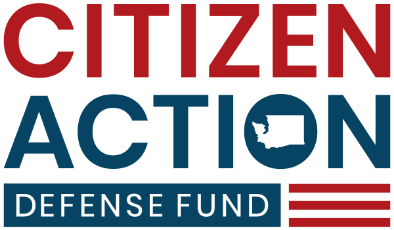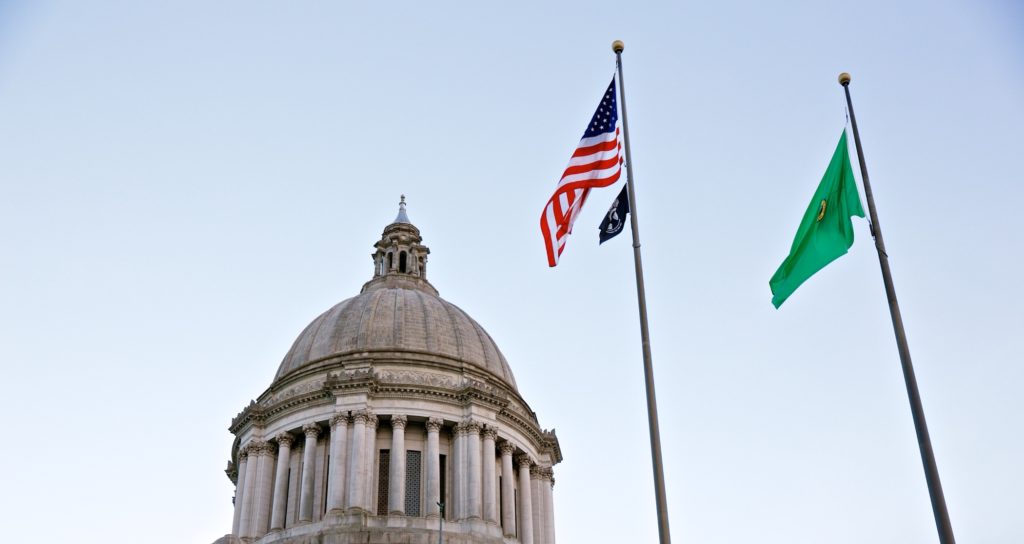In 2024, after a quick break next week for the holidays, we will begin shifting our attention to Olympia’s legislative agenda. Judging by some of the new proposals for this session, those who care about individual liberties and prudent governance certainly have their defensive work cut out for them this coming year. The Washington Policy Center discusses one of the more poorly conceived bills here.
But before we dive into on-deck legislation we would like to focus this week on our state’s risibly high sales taxes and to call attention to the issue of lowering the statewide rate (about 6.5%) this coming session. With Christmas just around the corner, “‘tis the season to be jolly,” but ‘tis also the season when millions of Americans accrue heaps of debt simply gift-shopping for family and friends (and some people we don’t even really like). Sales taxes make this a lot worse. Statewide, our sales tax ranks 12th worst —okay; not great. Combine that with our average local sales taxes, however, and our state catapults to fourth worst on the overall list.
Last week we discussed WSDOT’s comical plan to spend $10 million per rest stop on renovations and other upgrades. In weeks prior, we covered Olympia’s poor spending habits in other areas—from a program that spent upwards of $1 million to house each of 126 homeless individuals to the state’s ongoing practice of conducting high-stakes public-union negotiations in near-total secrecy. Perhaps unlike those matters, it is likely that most of our readers are all too familiar with Washington’s onerous tax regime. When I mention to outsiders that Washington has no income tax, it gives the immediate (but hardly enduring) misimpression that ours is one of the more business-friendly states—one that protects individual prosperity at the expense of poor governance, not vice versa. Upon a cursory review, of course, it quickly becomes clear that even without statewide income taxes (except, notably, on capital gains), Washingtonians pay in the top half of the country in combined state and local taxes.
When we think “high taxes,” most of us probably conjure images of the uber-progressive states—e.g., Massachusetts and Maryland (and often ours, unfortunately). While the data generally bears out this assumption, it does not account for subcategorical tax disparities. When you factor in all forms of taxation, the list opens, predictably, with New York. But when you isolate sales taxes, Tennessee, Arkansas, and Louisiana occupy the top three spots. New Jersey, meanwhile, which has a well-earned reputation for government expenditure at the severe expense of private wealth, at least stands at a respectable 30th worst in combined state and local sales taxes.
Of course, taxation, in whatever form, is not the sole measure of financial quality of life. Costs of living vary substantially, and all things considered I’d still rather live in Tennessee, the Volunteer State, than I would Vermont (ranked 32nd worst in sales taxes)—though I am a sucker for autumn visits to Bernie’s backyard. And state income taxes tend to be far more regressive. Since they charge everyone identical rates for the same goods, lower-income households end up spending more than do their high-income neighbors.
So it is that if you live in Clark County, you or someone you know has likely ventured over to Portland for their Chrismahanukwanzakah shopping. Ditto for all the Spokanites who drive to Coeur d’Alene this season. Oregon, after all, is one of just five states with no statewide sales tax—alongside Alaska, Delaware, Montana, and New Hampshire. And Idaho’s sales tax comes in at a healthy 37th worst. According to the Tax Foundation, “[r]esearch indicates that consumers can and do leave high-tax areas to make major purchases in low-tax areas . . .” This makes sense. The tax burden on expenditures can even outstrip the onus placed on earnings. And with people fleeing high-income-tax states for the likes of income-tax-free Florida and Texas, among others, it makes sense that the same or an even greater incentive would hold for taxes imposed on people’s take-home pay.
We cannot discount the adverse impact our state’s sky-high sales taxes have on the appeal of moving here, or its outsized role in pushing some Washingtonians to leave for cheaper (if not greener) pastures. And, perhaps ironically, households occupying the high end of our state’s tax base are also those most likely to have the resources to exit. Washington’s recent institution of a capital gains tax likely prompted Jeff Bezos to relocate to Florida—at least on paper.
While the damage our onerous tax regime will inflict is not yet fully realized—though Washington already ranks sixth in population outflow, per the U.S. Postal Service—about the time demographic reversals become tangible is when they have already begun spinning out of control. As a nice Christmas treat to all of us—and in order to nip reversals of economic and demographic fortunes in their buds—Olympia this year should lower the statewide sales tax rate and make it more difficult for local authorities to hike or keep theirs hiked.
Alki and Ho-Ho-Ho,
Sam Spiegelman

